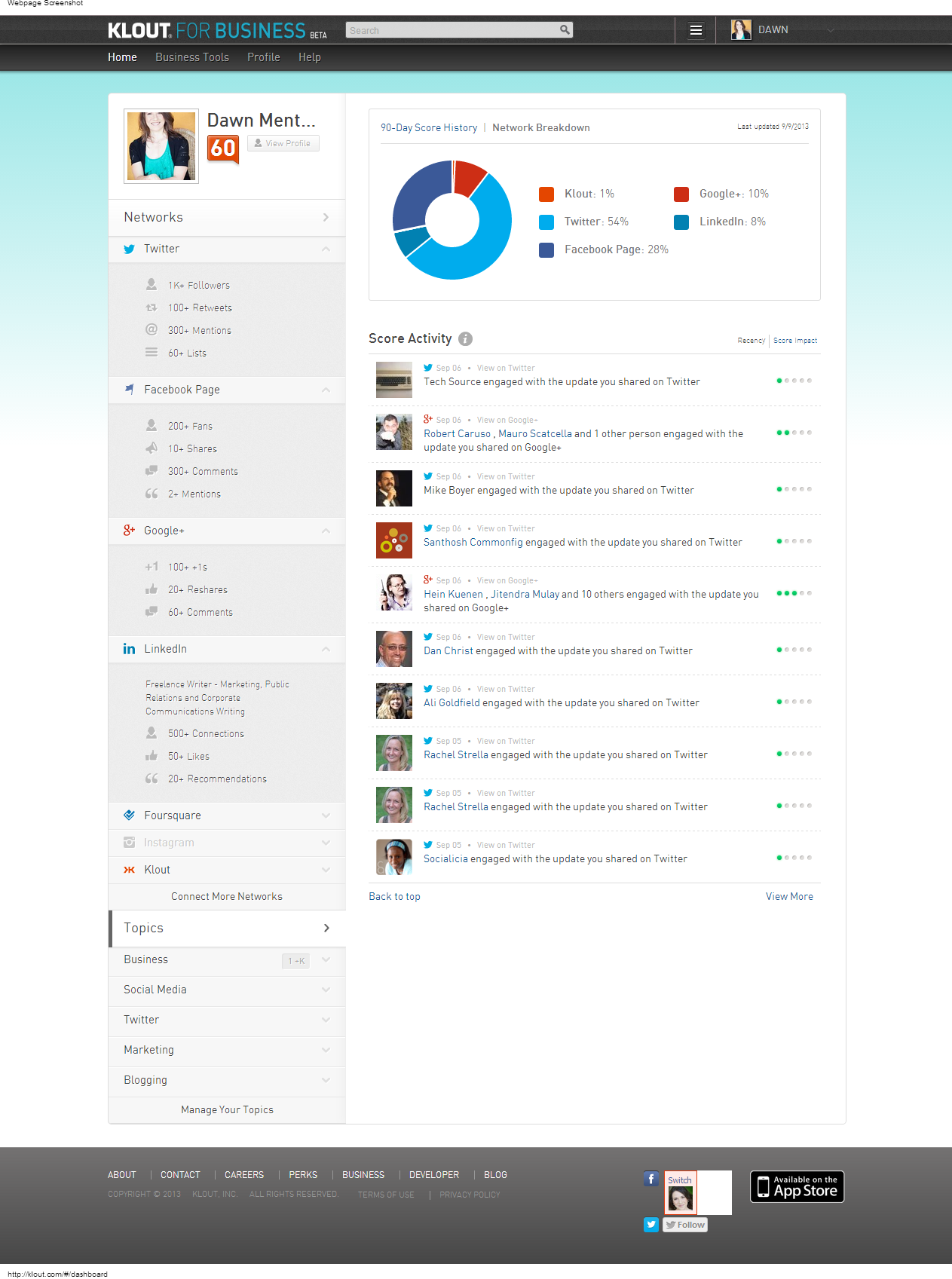Making Klout Matter: 2 Tips For Making It a Better Measure of Your PROFESSIONAL Online Influence
Klout has flaws, but it also has merit
Klout has come under fire by many who are quick to point out its flaws in measuring online influence. I agree that Klout  scores are best taken with a grain of salt; what you see may not accurately represent someone’s professional influence. But I do believe that Klout provides some value to small biz owners and solopreneurs – IF you set up your account thoughtfully and IF you use it to monitor your own progress in building influence rather than fixating on the Klout scores of others.
scores are best taken with a grain of salt; what you see may not accurately represent someone’s professional influence. But I do believe that Klout provides some value to small biz owners and solopreneurs – IF you set up your account thoughtfully and IF you use it to monitor your own progress in building influence rather than fixating on the Klout scores of others.
To monitor your professional influence, only link Klout with your professional social network accounts
Because most of us participate on social networks both professionally and personally, it’s easy to blur the lines when looking at our online influence through tools like Klout. How well – or not – Klout represents your professional online influence is largely up to you. If you connect your Klout account with social accounts that you primarily use for personal reasons where you’ve got a ton of back and forth with mom, dad, grandma, sons, daughters, cousins, gym partners, church friends, etc. about your favorite food of the day, pics from a party, pet tricks and that sort of thing, you could end up with a Klout score that rivals that of Brian Solis, but that doesn’t represent your influence as your professional self. If you want to use Klout to monitor your professional influence, only connect it with the social accounts that you use primarily for business purposes.
Use Klout to track your progress in gaining influence; don’t compare yourself to others
As I mentioned earlier, the accuracy of Klout depends a lot on how you set up your account. You can’t control how others set up their accounts, so don’t compare your Klout score with that of others. Instead, use it as a tool for monitoring your success in building your professional influence online. Take note of how posting and interacting (or failing to do so) on your connected networks impacts your score. And use Klout’s various dashboard features to determine which networks are showing the most promise in building online relationships that could lead to new business.

While I’m not glued to reviewing it daily, I periodically like to check my Klout dashboard to get a pulse on the various activity I’ve gotten on my individual social networks. A few of the things I find interesting:
- The network breakdown of how much each individual social channel is contributing to my Klout score.
- The specific interactions – and the weight they carry – that had an impact on my influence over the past 90 days.
- The summary data for each of my connected networks (which provides a glimpse of the activity each network has seen over the past 3 months).
For the skinny on how Klout works (including how it calculates your score, how others influence your score and how you influence the scores of others), check out the Klout website’s “How it Works” page.
Again, I don’t dwell on my Klout score (and don’t advise that you dwell on yours). But I do believe Klout – if you set up your account to focus on your professional social networks – provides a decent way of baselining your level of online influence and following how well you’re doing at improving upon it.
By Dawn Mentzer
What are your thoughts on Klout? Do you regularly use it to gauge your online influence?




Leave a Reply